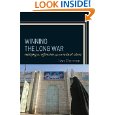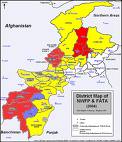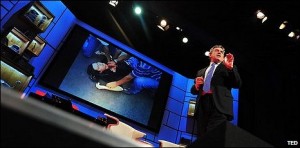July 26, 2009
Iraq Veterans Find Afghan Enemy Even Bolder
New York Times
NAWA, Afghanistan — In three combat tours in Anbar Province, Marine Sgt. Jacob Tambunga fought the deadliest insurgents in Iraq.
But he says he never encountered an enemy as tenacious as what he saw immediately after arriving at this outpost in Helmand Province in Afghanistan. In his first days here in late June, he fought through three ambushes, each lasting as long as the most sustained fight he saw in Anbar.
Like other Anbar veterans here, Sergeant Tambunga was surprised to discover guerrillas who, if not as lethal, were bolder than those he fought in Iraq.
“They are two totally different worlds,” said Sergeant Tambunga, a squad leader in Company C, First Battalion, Fifth Marines.
“In Iraq, they’d hit you and run,” he said. “But these guys stick around and maneuver on you.”
They also have a keen sense of when to fight and when the odds against them are too great. Three weeks ago, the American military mounted a 4,000-man Marine offensive in Helmand — the largest since President Obama’s troop increase — and so far in many places, American commanders say, they have encountered less resistance than expected.
Yet it is also clear to many Marines and villagers here that Taliban fighters made a calculated decision: to retreat and regroup to fight where and when they choose. And in the view of troops here who fought intensely in the weeks before the offensive began, fierce battles probably lie ahead if they are to clear the Taliban from sanctuaries so far untouched.
“It was straight luck that we didn’t have a lot more guys hit,” said Sgt. Brandon Tritle, another squad leader in Company C, who cited the Taliban’s skill at laying down a base of fire to mount an attack.
“One force will put enough fire down so you have to keep your heads down, then another force will maneuver around to your side to try to kill you,” he said. “That’s the same thing we do.”
In other parts of Helmand the Taliban have been quick to mount counterattacks. Since the offensive began, 10 Marines have been killed, many of them south of Garmser in areas thick with roadside bombs. In addition, British forces in Helmand, who often travel in lightly armored vehicles, have lost 19 men, all but two from bombs.
All told, Western troops have died in greater numbers in Helmand this month than in any other province in Afghanistan over a similar period since the 2001 invasion.
It is unclear whether the level of casualties will remain this high. But the Taliban can ill afford to lose the Helmand River Valley, a strip of land made arable by a network of canals that nourish the nation’s center for poppy growing.
“This is what fuels the insurgency,” said Brig. Gen. Larry Nicholson, commander of the Marine brigade leading the offensive. [CS: hatred of outsiders is what fuels the insurgency, drug money from poppies may make it easier to fund insurgency, and getting rid of money from drug trade might make insurgent operations more difficult, but it will not end the insurgency — this statement is a good example of the U.S. military's predilection for confusing tactical physical (especially logistics related) factors with strategic moral forces.]
For now, the strategy of the Taliban who used to dominate this village, 15 miles south of the provincial capital of Lashkar Gah, is to watch and wait [CS: i.e., to learn via trial and error] just outside, villagers and Marines here say.
“They all escaped,” said Sardar Gul, a shopkeeper at the Nawa bazaar. Mr. Gul and others who reopened stores after the Marines arrived estimate that 300 to 600 Taliban fled to Marjah, 15 miles to the west and not under American control, joining perhaps more than 1,000 fighters.
Marine commanders acknowledge that they could have focused more on cutting off escape routes early in the operation, an issue that often dogged offensives against insurgents in Iraq.
“I wish we had trapped a few more folks,” the commander of First Battalion, Fifth Marines, Lt. Col. William F. McCollough, told the top American commander in Afghanistan, Gen. Stanley A. McChrystal, who visited Nawa. “I expected there to be more fighting.”
When the full battalion arrived in Nawa in early July, the Taliban “knew we were too powerful for them” and left, said Staff Sgt. Michael Placencia, a platoon sergeant in Company C.
But he predicted the Taliban would stand and fight if Marines were to assault Marjah, describing them as a “more efficient” foe than the insurgents he saw as a squad leader in Anbar in 2005 and 2006. [CS: i.e., he predicted that that the Taliban will do what we want them to do, so we can use our superior firepower to blow them away — not likely, except by accident or error.]
“They will come back, and they will try to take this back and pin us down,” said Maj. Rob Gallimore, a British officer who trains Afghan soldiers here. He hopes that the Marines do not spread themselves too thin and that they focus instead on building a deep bond with locals in places they occupy, a classic counterinsurgency tactic.
So Marines are bracing for a fight against guerrillas who, they discovered in June, are surprisingly proficient at tactics the Marines themselves learned in infantry school.
“They’d flank us, and we’d flank them, just like a chess match,” said Sgt. Jason Lynd, another squad leader in Company C.
In June the Marines ended up in sustained firefights the first four times they left their outpost. The Taliban were always overmatched — attacking the Marines with only one-third the number of men — but they pressed the fight, laying complex ambushes and then cutting off Marines as they made their way back to base. [CS: Use of the word “complex” is very revealing, because it is evidence of a deleterious mental effect — to wit: complexity is aself-referencing quality that describes a whole by relating the number, variety, and arrangements of the parts to one's ability to comprehend the whole. Use of the term “complex” reflects on the observer, implying that something is difficult to understand. In this regard, it is important to appreciate that the Taliban tactics may appear complex to those trying to comprehend them from the receiving point of view, but it in not way implies that they are harder to understand or difficult to execute from the Taliban's or delivering point view. Thus the use of the term “complex” in this context hints at a dangerous asymmetry in OODA loops.]
One fight began after Marines stopped three vans, which they let go. Fifteen minutes later they took fire from two homes near where they had been pursuing a suspicious man they wanted to question. They cleared both buildings, but were then attacked by gunmen behind the homes, some of whom, the Marines believe, had been in the three vans, a few disguised in burqas.
Somehow, none of the Marines were hit in the secondary ambush. “They tried to suck us in, and their plan worked,” Sergeant Tritle said. “They just missed.”
No Marines were killed in the two weeks they were here in June.
In contrast to Iraqi insurgents, the Taliban do not seem to have access to large artillery shells and other powerful military munitions that Anbar fighters used to kill hundreds of Marines and soldiers. The bombs found so far have been largely homemade with fertilizer, though they have still killed more than 20 British soldiers and United States Marines to the north and south of Nawa.
“If they had better weapons, we’d be in real trouble,” said Lance Cpl. Vazgen Matevosyan.
What the Taliban lack in munitions they make up for in tactics, even practicing “information operations” and disinformation, Marines say. Knowing the Marines listen to their two-way communications, they say, the Taliban describe phony locations of ambushes and bombs. [CS: yet another reference to mental effects again]
“They’re not stupid,” said Lance Cpl. Frank Hegel. “You can tell they catch on to things, and they don’t make the same mistake twice.” [and again]
Taliban Attack Police Station
KABUL, Afghanistan (AP) — Taliban fighters wearing suicide vests and armed with AK-47 rifles and rocket-propelled grenades attacked the main police station in the southeastern city of Khost on Saturday, officials said. They set off gun battles that went on for hours and left 7 militants dead and 14 other people wounded.
Also on Saturday, a British soldier was killed by a roadside bomb during a patrol around Lashkar Gah, the capital of Helmand Province.
Zemeri Bashary, an Interior Ministry spokesman, said all the attackers in Khost were killed, but the Defense Ministry later said that one attacker might have escaped.













